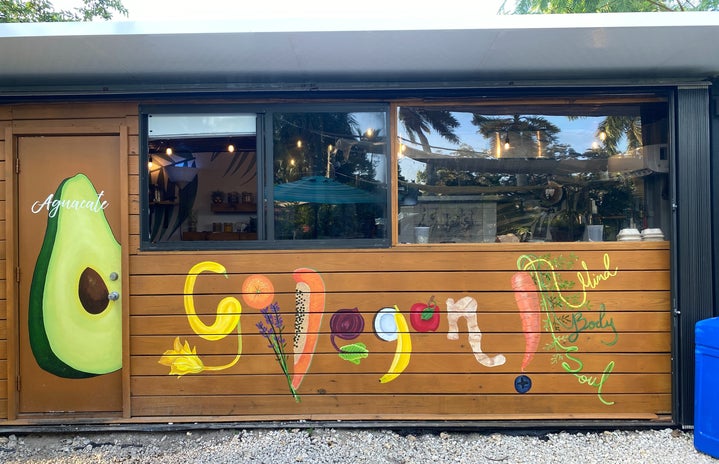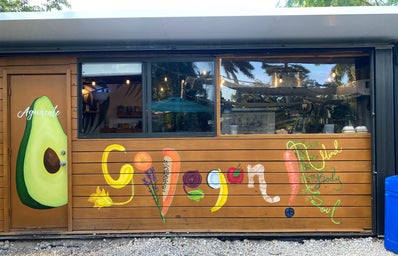“I could never do that.”
“I would miss cheese too much.”
“Eating meat is just a natural part of the food chain!”
“I buy organic and free range–isn’t that enough?”
“It’s just too hard to commit to.”
These are just a few of the comments I get on a daily basis when I mention that I am vegan. Even though I have only been a vegan for a few months, and a vegetarian before that, I still have learned a lot about the misconceptions I had and many other people still have about veganism. It doesn’t help that vegans get a bad reputation for being diet obsessed, radical tree huggers that push their views down other people’s throats, despite the fact that most vegans are far from this depiction. I’m here to set the record straight about common beliefs, myths, and misconceptions people have about veganism with three basic facts.
1. Veganism is a lifestyle, not a diet.
Plant-based diets have grown in popularity in recent years, which is great for more vegan meal options and accessible grocery store items, but is bad for the image of veganism. While adjusting one’s diet to all plant-based is the easiest way of avoiding the use of animal products, going vegan does not just meant altering your food consumption. Veganism encompasses the philosophy and way of living that tries to minimize-as much as possible-all forms of exploitation and cruelty against animals in all areas, including fashion, beauty products, research, medicine, education, etc. While yes, transitioning to a plant-based diet is a step in the right direction in terms of minimizing one’s personal use of animal products and contribution to worldwide animal exploitation, it is not the only dimension of veganism. It is not a diet change to become healthier (although the benefits to your health are a positive); it is a movement to end animal exploitation and speciesism. Remembering and promoting the initial philosophy of veganism can help people stay committed to the vegan lifestyle, as well as show non-vegans that it is more than just a diet or a fad.
2. Veganism doesn’t have to be expensive.
One main argument I hear against veganism is that it is unsustainable and expensive for the average person. Store-bought meat and cheese alternatives typically have higher prices than those derived from animal products. Many pre-packaged vegan options are only found online or at high-end grocery stores. These products ARE expensive in comparison to animal products (although the reason for that is controversial and political- which I won’t get into this article), but eating vegan meals doesn’t have to rely on these manufactured products that raise your grocery bill. Naturally vegan food, such as grains, rice, beans, vegetables, fruits, nuts, seeds, etc., are widely accessible and relatively cheap, and can be used for many delicious and easy recipes. Having a balanced mix of accidentally, naturally, and processed vegan food can keep your budget down and keep your stomach and heart full.
3. Veganism doesn’t have to be hard.
Like I tell every single person that says, “I don’t know how you do it. I could never,” being vegan is only hard FOR ME when I go out to eat. How ‘hard’ veganism is depends on so many things, like where you live, your finances, your support system, etc. Changing your regular habits can be challenging. But veganism itself is not a hard thing to commit to. For me, when it comes to saving animals from suffering and putting their life above my own temporary pleasure, the decision is easy. When you are passionate about something, it becomes a part of who you are and who you want to be. If you become vegan with the idea that it is a temporary ‘diet’, then yes, it can be difficult to stay committed. It may seem like a lot to read the ingredients behind every product that doesn’t already have a vegan label on it, study restaurant menus and call to ask if they have any accommodations, and search online for beauty products and clothing. However, like all habits, it becomes a part of your routine after a couple of trips to the grocery store. You start to instantly recognize vegan items on a menu or vegan restaurants around you. You find brands that you’re comfortable buying from. There are many apps and online resources that can help you find vegan shops and restaurants near you. With veganism becoming more popular, more resources are becoming available to help the transition easier.
If you’re considering going vegan, or even just experimenting with some vegan food or products, just do it. Take that leap. You won’t regret it.


